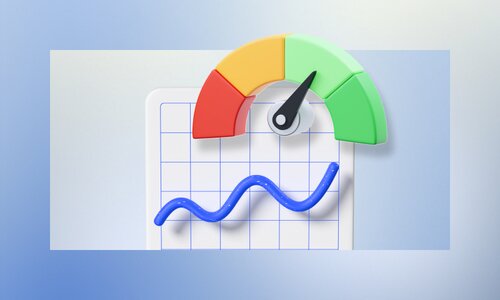Suppose you’re working towards achieving personal finance goals, such as having a certain amount of money in the bank or achieving financial independence. In that case, one of the best ways to track your progress is by calculating your net worth.
Your net worth is a snapshot of your finances at any given time. According to Federal Reserve data, the average net worth of a person in the U.S. was $748,000 in 2019. The United States also boasts the highest number of HNWIs or High-Net-Worth Individuals worldwide, with more than 11.6 million HNWI households in 2021.
Let’s talk about net worth — what it is, how to calculate it, and how it can help you understand your true level of wealth.
What is net worth?
Net worth, sometimes called net wealth, is the difference between the assets a person owns and the liabilities they owe. If you were to add up the value of everything you owned that has a cash resale value and subtract all the debts you owe from that number, you would arrive at your net worth.
For example, if your total assets, including your home, investments, and rental properties, added up to a million dollars, but you owed $500,000 to the bank in mortgage loans. Your net worth is $500,000.
Net worth is used to give an accurate picture of a person’s financial standing because while someone may own many assets and live an extravagant lifestyle if they owe a lot of debt and other liabilities, their net worth may be zero or negative.
Calculating net worth
The net worth formula is:
Net worth = Asset – Liabilities
Assets
An asset is an item or resource you own that can be sold for money. Assets can generate ongoing cash and passive income, but the value of an asset is typically arrived at by calculating what it would bring in were it to be sold today. Stocks, bonds, and other investments are assets, though they are less liquid assets than cars, jewelry, or even cash in the bank.
To correctly arrive at the value of your assets, you’ll want to include the following in your calculations:
- Home: If you own your home, use the current market value of your home. Your home may have appreciated since you bought it, and this new value would be put in your balance sheet to assess your net worth accurately.
- Rental or other real estate: If you have any other real estate holdings or personal property, such as rental or vacation properties, you’ll want to add these to the assets column.
- Vehicles: The value of owned automobiles should be included in your assets. The value of cars typically depreciates the longer you’ve owned them, so you’ll want to look at current values. Don’t include any leased vehicles. You’ll also want to include RVs, campers, or boats in this column.
- Jewellery: The value of any precious metals, gems, or jewelry.
- Household items: Any household goods and items, such as furniture, home electronics, silverware, or memorabilia.
- Retirement accounts: The current total balance of all retirement plans, including IRAs, 401(k) savings, SEP IRAs, variable annuities, and any other retirement savings.
- Stocks, bonds, and mutual funds: If you own any stocks that aren’t part of your retirement accounts, you’ll need to add those. Also, include any bonds as well as mutual funds.
- Insurance policies: The cash value of any life insurance, whether whole life or universal life policies, should be included in your assets column. Term life policies do not have any monetary value.
- Bank accounts and cash: The current balance of your checking accounts and savings accounts will be added to your assets and any cash.
Liabilities
Liabilities are purchases for which you still owe money. As you pay off your liabilities, some of these can become assets, such as a mortgage loan that buys you more and more home equity in your residential or rental property. The more liabilities and debts you pay off, the higher your net worth becomes.
To calculate your net worth, include the following in your liability calculations:
- Home mortgage principal: This is the amount of money you owe on your mortgage, which, if you were to pay it off today, would allow you to own your home free and clear.
- Other mortgage principals: If you own investment properties with mortgage loans you’re paying off, these must also be added to your liabilities column.
- Other loans: If you have any other loans, such as personal loans, auto loans, or student loans, add those in, too.
- Credit card debt: Any credit card debt will also go in your liabilities column.
The importance of net worth
If you’re running a business, your business’s net worth will differ from your net worth as an individual or family. Here’s how net worth impacts your business and your finances.
Net worth in business
The current net worth of a business is calculated in the same way as an individual’s net worth by subtracting the total liabilities from the total assets. A business’s net worth is also known as its book value or shareholders’ equity and is an essential number in determining the financial health of the business. Profitable companies will have positive — and increasing — net worth, which can also be reflected in rising stock prices. In contrast, companies with a negative net worth statement may inspire a lack of confidence in their lenders and investors.
Net worth in personal finance
Your net worth will affect your ability to get loans and make investments. For instance, accredited investors — permitted to invest in high-risk and unregistered securities — must have a net worth of at least $1 million, excluding their primary residence. Individuals with significant assets and a high net worth are called High Net Worth Individuals (HNWI).
What is negative net worth?
Negative net worth is when the value of your outstanding debts is greater than that of your combined assets; you owe more than you own. A negative net worth is not uncommon in young people, who may owe money on credit cards, student loans, and auto loan bills but have not yet saved enough cash to purchase a home or start investing.
Negative net worth indicates that the business or a family has more debt than assets. Remedying this must often become a priority because a negative net worth can make businesses and families vulnerable to bad luck and unforeseen financial situations. If a lender calls upon a debt, for instance, they can find themselves unable to pay the bill and face bankruptcy.
Budgeting, debt reduction, and even negotiating with some lenders to reduce the debts can be helpful strategies in reducing debt, moving towards a positive net worth, and achieving your financial goals.
Increase your net worth with real estate
You can boost your net worth significantly through real estate investing. Some ways to do this include:
- Rental properties: By investing in single-family homes or multifamily apartments, you can create cash flow and home value appreciation, which will improve your net worth over time.
- Short-term rentals: Vacation and short-term rentals can command higher rents and values, especially if they’re in popular tourist destinations.
- Commercial properties: Commercial real estate can be an excellent investment for advanced investors, and a successful purchase can significantly increase your net worth.
- REITs or Real Estate Investment Trusts: if you don’t have or don’t want to invest the cash to purchase a property outright or take on a mortgage loan, consider investing in REITs, which are stocks in investment property.
By understanding your net worth and calculating it regularly, you can see how much (and how fast) your wealth is growing.
Our platform allows you to purchase shares of rental properties starting at $100, providing an opportunity to diversify your investment portfolio.
The opinions expressed in this article are for general informational purposes only and are not intended to provide specific advice or recommendations for any individual or on any specific security or investment product. The views reflected in the commentary are subject to change at any time without notice. View Arrived’s disclaimers.








